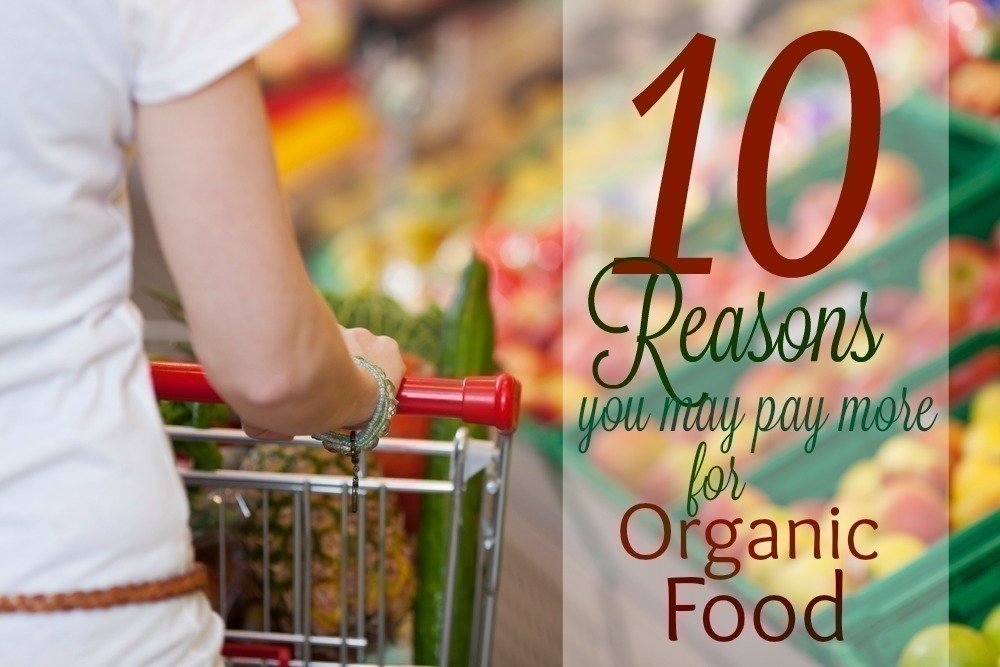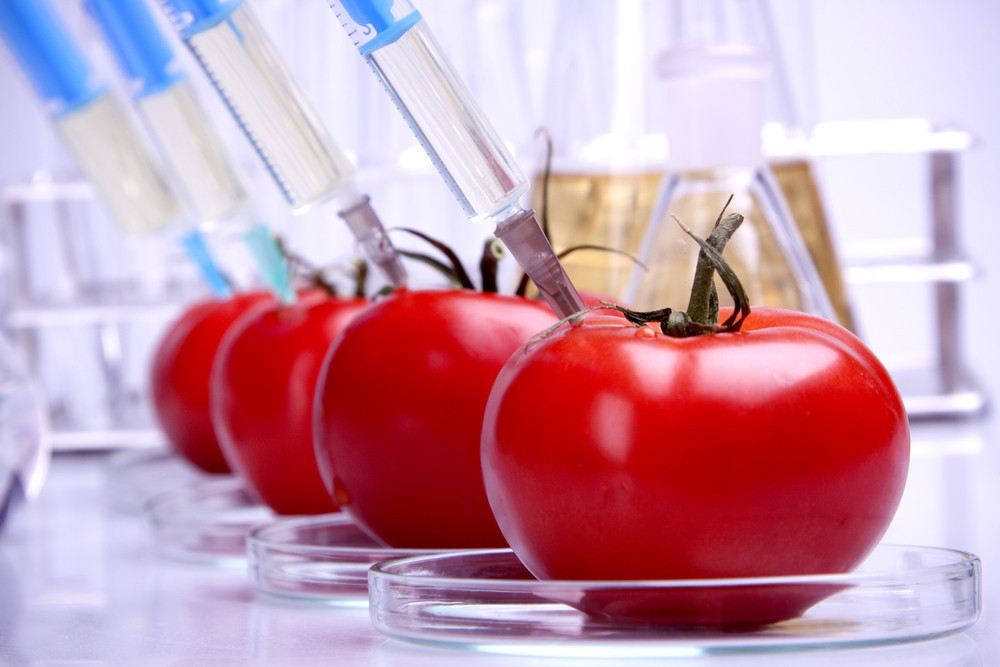
Over the last few years, we’ve seen a shift in coupon policies amongst various stores; we’ve also seen a shift in the eating habits of many as well…
If you were to poll MOST Americans, organic food has a earned a reputation from most as being … expensive. Unreachable. Unnecessary. I never used to care, until … probably after my 2nd or 3rd. I had friends that were VERY particular, but then other friends that used to poke fun at them for being … in better words “food critics”.
Many consumers don’t believe Organic food has any nutritional benefit over conventional food…only a higher price tag (which to many is not justified) – ask anyone who believes strongly IN Organic food and you might just get an entirely different viewpoint.
I get many mixed emotions daily as I scroll through my Facebook feed. Who ever knew a Facebook feed could be such a GREAT way to inspire ideas to write? They are for me. Watching people drop $20 – $30 on eating out, but then they may think that Organic apples are just a ridiculous cost (even though they can be pretty cheap most weeks at one or two stores…)
The saem people think nothing of dropping $15 – $20 at the 99 Only store on really bad food choices, but then scoff at why someone would pay $3.49 for a loaf of bread. I have heard, it, and it happens in my OWN family – not just friends. In defense, I’ll say the 99 Only does have some GREAT Organic food choices – but it’s moving past the BAD ones that takes willpower.
Just a few months ago we shared some tips for saving on Organic Food – but is Organic food REALLY more expensive than traditional conventional food?
In many cases you might just save MORE on Organic than conventional – but traditionally, Organic foods can cost more than conventional for many reasons.
#1 – Labor Costs More
Since Organic food doesn’t use chemicals and synthetic pesticides …. organic farmers have to hire more workers for hand weeding, cleanup of polluted water and more.
Organic farmers are basically substituting labor and intense management over the use of chemicals.

#2 -Fertilizer Costs are More
When you are buying NON Organic food (including produce), chemical fertilizers are popular because they are cheap – they are also easy to transport from point A to point B. But Organic farmers forego the chemical fertilizers for compost and animal manure – which isn’t quite as cheap to ship.
Therefore the cost is much higher… and is passed along down to you, the consumer.
#3 – Organic Food Grows at a Slower Rate
Conventional NON Organic food takes LESS time to produce, because they use chemicals and growth hormones.. but Organic farms and farmers (which are usually MUCH smaller in size), take an incredibly longer time to produce crops because they forego these grow hormones to achieve Organic crops.
#4 – Organic Certification
To acquire USDA Organic Certification, farmers and production facilities need to comply with specific requirements/standards. in some cases it requires them to modify their facilities to meet organic certification. Organic farms MUST pay an annual $400 to $2,000 per year for their Annual Inspection and Certification.
#5 ~ Organic Farmers Must Rotate Crops
Conventional NON Organic farmers are able to farm on every bit of land available – but Organic farmers must rotate crops to keep the soil healthy.. which prevents them from planting those same items in their fields that next season. Because that limits them so greatly, they are not able to grow those quantities that regular conventional farmers can.
#6 – Raising Livestock Costs More
When you talk about Organic meat, it’s considerably MORE than conventional – head to Costco and pay $5.99 lb for Boneless Skinless Chicken, and $21.49 for 4 lbs of Organic Ground Beef.
The reason that meat is so much higher is because the livestock have greater living conditions – and Organic feed is quite a large cost more (actually double the price) of regular conventional feed.
Sure, you might find chicken or beef without hormones, but what are they being FED – that’s the million dollar question. Conventional feed is cheap — because it’s cheap, farmers (not all) lean towards that versus healthier feed (NON-GMO).
You can also equate that to the food in our grocery store: processed food is cheap, but then may not be the BEST option for your family.
#7 – Organic takes more Time to Grow
This applies to animals as well as crops. Conventional farmers use chemicals and growth hormones to spurt growth in their animals and plants – and although you may find hormone “free” chicken, it does not mean chickens don’t receive antibiotics. Millions of chickens are grown to slaughter each year in the U.S. in as little as 42 days (when their normal lifespan is 14-15 years…) – think about that next time you see cheap chicken advertised in your grocery store.
Organic [Chicken] in the U.S. means that the chicken had to have been fed not vegetarian diet that doesn’t include GM ingredients or toxic pesticides – nor can they be administered antibiotics.
In terms of plants/crops, organic farms take longer time to produce crops because they don’t use chemicals or growth hormones.
#8 – Government Subsidies are LESS
Billions of dollars in tax dollars subsidize the junk [processed] food industry – more than $7 BILLION each year. — the government subsidizes corn and soybeans more than anything else (while 80+ % of those are GM). Organic and local foods only received $15 Million – unbelievable difference.
Don’t believe me? Open up the Sunday inserts for your newspaper. Look at the coupons.
#9 – It’s Costly to Ship and Sell
Since Organic farmers don’t use synthetic fertilizers to speed growth, organic foods take MUCH longer to make it to the market. Even more, farmers have to transport them in smaller batches to avoid contamination from conventional.
Because they can take longer to ship and because they can’t sit AS long, some items MAY spoil faster – so organic farmers incur EXTRA costsso they can produce better foods. They absorb some of those extra costs but some are passed down to you, too.
#10 – More Demand than there is Supply
Although we tend to get tunnel vision in the area of grocery shopping. retail sales of organic food has been rising over the last few years – the demand is GREATER than the supply.
Organic farmland is not as common as conventional in the U.S. – Organic farmland accounts for a MERE 0.9 in the entire world (it might be more now in 2016 but I haven’t seen any figures yet – and I do a LOT of reading!)
Since Organic farmers typically produce less than conventional, that drives up the cost OF organic food.
WHEW! Overwhelming? It can be. You can actually buy Organic without even spending THAT much more… it is possible, with just a shift in focus. Maybe some willpower. Step by step, it’s possible. I think it is, we have done it.

We actually have a few posts that MIGHT help you reduce your costs in this area:
How to Buy and Eat Organic without Breaking the Bank
9 Ways to Save on Organic Food




Leave a Reply
You must be logged in to post a comment.